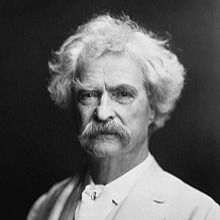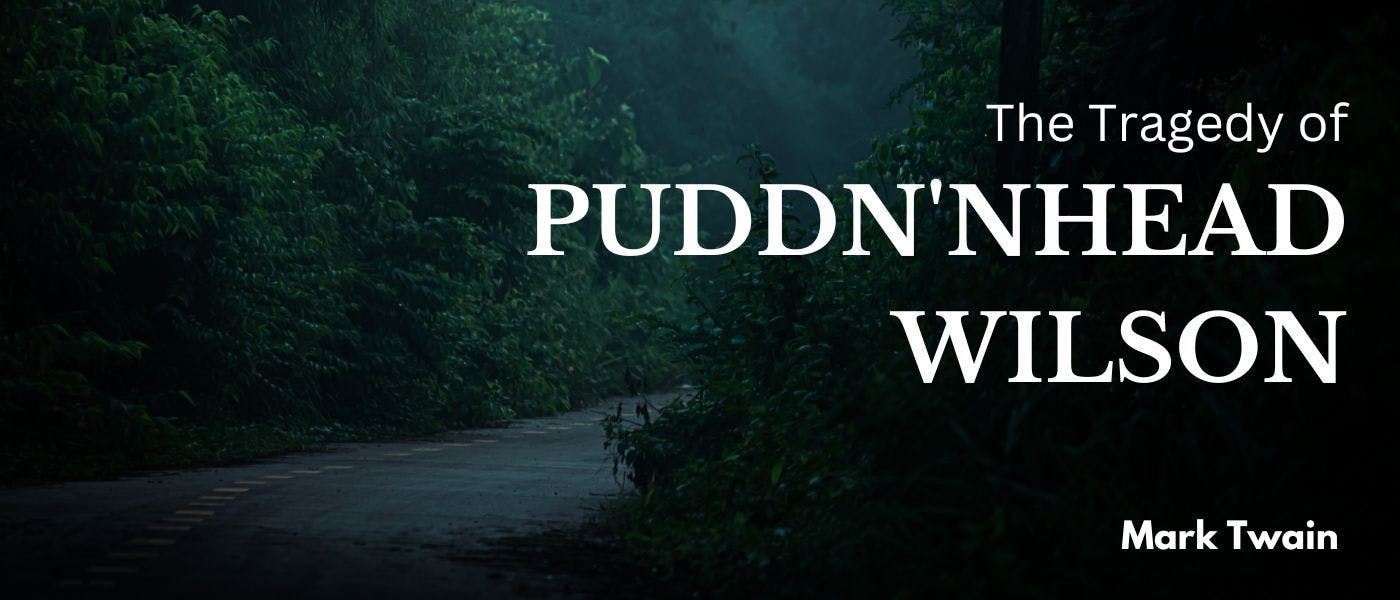The Tragedy of Pudd'nhead Wilson by Mark Twain, is part of the HackerNoon Books Series. You can jump to any chapter in this book here. The Judge Utters Dire Prophecy
The Judge Utters Dire Prophecy
Even popularity can be overdone. In Rome, along at first, you are full of regrets that Michelangelo died; but by and by you only regret that you didn’t see him do it.—Pudd’nhead Wilson’s Calendar.
July 4. Statistics show that we lose more fools on this day than in all the other days of the year put together. This proves, by the number left in stock, that one Fourth of July per year is now inadequate, the country has grown so.—Pudd’nhead Wilson’s Calendar.
The summer weeks dragged by, and then the political campaign opened—opened in pretty warm fashion, and waxed hotter and hotter daily. The twins threw themselves into it with their whole heart, for their self-love was engaged. Their popularity, so general at first, had suffered afterward; mainly because they had been too popular, and so a natural reaction had followed. Besides, it had been diligently whispered around that it was curious—indeed, very curious—that that wonderful knife of theirs did not turn up—if it was so valuable, or if it had ever existed. And with the whisperings went chucklings and nudgings and winks, and such things have an effect. The twins considered that success in the election would reinstate them, and that defeat would work them irreparable damage. Therefore they worked hard, but not harder than Judge Driscoll and Tom worked against them in the closing days of the canvas. Tom’s conduct had remained so letter-perfect during two whole months, now, that his uncle not only trusted him with money with which to persuade voters, but trusted him to go and get it himself out of the safe in the private sitting-room.
The closing speech of the campaign was made by Judge Driscoll, and he made it against both of the foreigners. It was disastrously effective. He poured out rivers of ridicule upon them, and forced the big mass-meeting to laugh and applaud. He scoffed at them as adventurers, mountebanks, side-show riff-raff, dime museum freaks; he assailed their showy titles with measureless derision; he said they were back-alley barbers disguised as nobilities, peanut peddlers masquerading as gentlemen, organ-grinders bereft of their brother monkey. At last he stopped and stood still. He waited until the place had become absolutely silent and expectant, then he delivered his deadliest shot; delivered it with ice-cold seriousness and deliberation, with a significant emphasis upon the closing words: he said that he believed that the reward offered for the lost knife was humbug and buncombe, and that its owner would know where to find it whenever he should have occasion to assassinate somebody.
Then he stepped from the stand, leaving a startled and impressive hush behind him instead of the customary explosion of cheers and party cries.
The strange remark flew far and wide over the town and made an extraordinary sensation. Everybody was asking, “What could he mean by that?” And everybody went on asking that question, but in vain; for the Judge only said he knew what he was talking about, and stopped there; Tom said he hadn’t any idea what his uncle meant, and Wilson, whenever he was asked what he thought it meant, parried the question by asking the questioner what he thought it meant.
Wilson was elected, the twins were defeated—crushed, in fact, and left forlorn and substantially friendless. Tom went back to St. Louis happy.
Dawson’s Landing had a week of repose, now, and it needed it. But it was in an expectant state, for the air was full of rumors of a new duel. Judge Driscoll’s election labors had prostrated him, but it was said that as soon as he was well enough to entertain a challenge he would get one from Count Luigi.
The brothers withdrew entirely from society, and nursed their humiliation in privacy. They avoided the people, and went out for exercise only late at night, when the streets were deserted.
About HackerNoon Book Series: We bring you the most important technical, scientific, and insightful public domain books.
This book is part of the public domain. Mark Twain (2004). The Tragedy of Pudd'nhead Wilson. Urbana, Illinois: Project Gutenberg. Retrieved October 2022 https://www.gutenberg.org/cache/epub/102/pg102-images.html
This eBook is for the use of anyone anywhere at no cost and with almost no restrictions whatsoever. You may copy it, give it away or re-use it under the terms of the Project Gutenberg License included with this eBook or online at www.gutenberg.org, located at https://www.gutenberg.org/policy/license.html.

